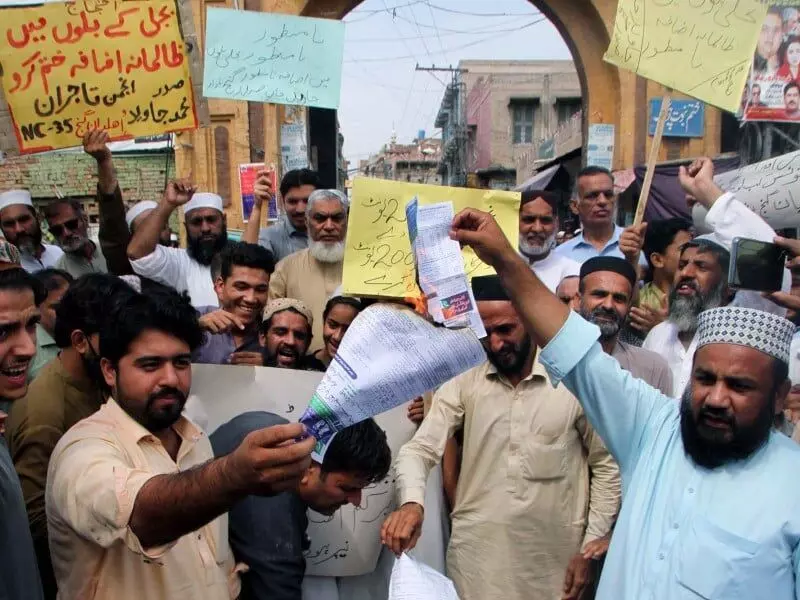
Pakistan seeks IMF help after failing to handle protests against tariffs
text_fieldsIslamabad: Protests continuing in Pakistan over increase in electricity bills and taxes are threatening to go out of control.
However, the Pakistan government has said its hands are completely tied to the International Monetary Fund (IMF) and cannot give any relief without the financial agency's consent.
Pakistan’s Interim Finance Minister Shamshad Akhtar has said that the government is tied in chains to the IMF programme and has to implement taxes, further increase electricity and gas tariffs, push prices of fuel higher and increase the tax base.
"Pakistan is an import-dependent country, and the commodity prices have to be, passed on, as we do not have the fiscal space and any room for subsidies, which is going to hurt people – whether in the shape of electricity of fuel prices", said Dr Shamshad in her first policy statement after taking office as interim finance minister.
"We will have to further increase in power and fuel prices in relation to higher prices in the global markets and lack of availability of any fiscal space for subsidies. We have no choice but to stick to the International Monetary Fund (IMF) programme", she added.
The statement shows the dependency of the current government on the IMF programme and its compulsion to express its helplessness to the people, who are fuming with anger over towering electricity bills, increased fuel prices and imposed taxes.
Pakistanis have been protesting every day in all corners of the country, rejecting the government’s policies and refusing to pay their bills.
"We will not pay our bills. We reject them. We will burn these bills and this government to the ground. They have made it impossible for us to survive anymore under this inflation. There is no work, no businesses, no jobs and the common man is now forced to have suicidal thoughts", said one of the protestors in Rawalpindi.
"People have started committing suicide. This government wants us to pay them taxes and bills and leave our children and families starving? They enjoy luxuries and free electricity and fuel and press us further into our graves by imposing such taxes and bills and price hikes on us. We will not tolerate this anymore”, said another protestor.
The government has taken note of the fast-worsening situation through public protests and has decided to contact the IMF to brief them about the uproar prevailing among the masses.
“The government will have to find a way out of this situation before it turns into a civil war. Also, with such a massive number of people not paying their bills, the collection of the government will also suffer a major setback, which will also damage the already crippling economy. The IMF will have to understand this and guide Pakistan out of it. Otherwise, the people will take matters into their own hands and the country will fall apart within days”, said Adnan Shauqat, senior political analyst.
With the start of September 2023, the government is lining up for another increase in fuel prices as per its commitment to the IMF. If such an announcement is done, the reaction of the already angry and protesting public may turn more violent as traders, business community and the masses at large have vowed to strongly resist such actions by the government and if needed, bring the country to a standstill until it reverses its increased taxes, increased fuel prices and gives relief on the towering bills.
IANS with superficial edits























